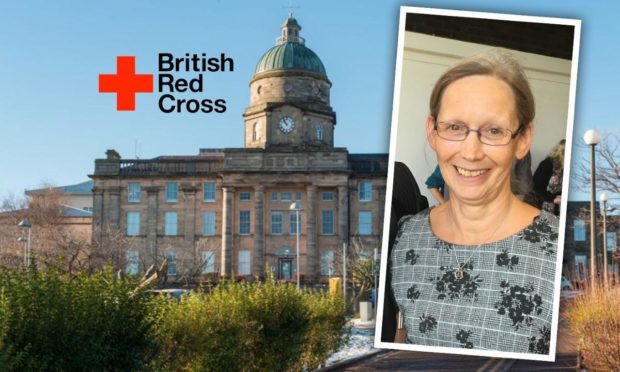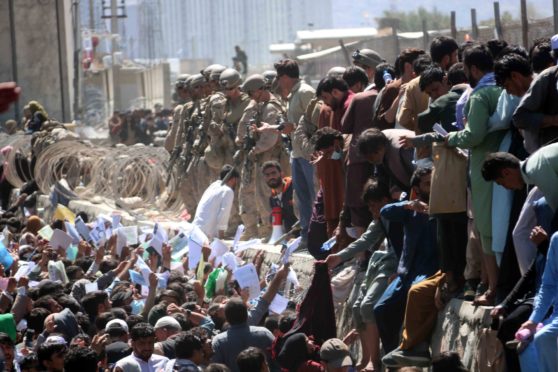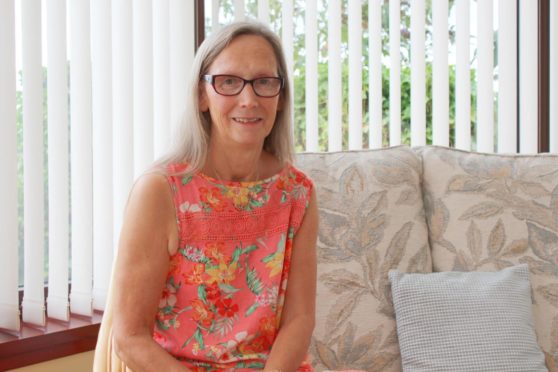Liz Tait has first-hand seen the struggles Afghan families face after fleeing the Taliban.
Last month, Dr Gray’s head clinical and care governance was deployed by British Red Cross to Dubai as part of their psychosocial support team.
Dubai is a brief stopover for the evacuees en route from Kabul to the UK.
This came in the wake of dramatic images at Kabul Airport amid the Taliban taking control of Afghanistan.
She joined the charity’s psychosocial support team in 2005.
High pressure
When Liz is on call, she has to be ready to be deployed within six hours.
She can be sent out for no more than 10 days at a time due to the high-pressure environments.
She said: “Our role is to respond to psychosocial requests from the foreign, commonwealth and development office when British nationals are caught up in a crisis.”
There were two shifts to cover with Liz on night shift and her colleague, Jan, on during the day.
Liz said: “These large military planes normally carry 180 or 190 people, but regularly we were taking over 400 evacuees off these planes.
“They were all sitting on the floor of the planes – small children sitting in parents’ laps, toddlers sitting beside parents with an arm around them.”
Provide reassurance to Afghan families
Liz provided reassurance and kindness to restore some dignity for hundreds of Afghan families.
Many were concerned that they might be separated again as they had been in Kabul.
She also assessed if people were more vulnerable and in need of psychosocial support.
“They had not eaten for several days.”
Liz said: “They were really frightened as some had very traumatic journeys trying to get through Kabul and had been separated on route.
“Some of them were unwell, some of them were injured, most of them were very hungry as they had not eaten for several days.”
Talking about a family who had a child with special needs, she said: “His family was very concerned about what would happen to him.
“Would he be taken away from them?
“I was able to say ‘he’ll be in mainstream education with all the rest of the children, don’t worry’.”
Heart-warming story
Liz also recalled talking to an evacuated interpreter as he went through security with his partner and children.
As their bags were scanned, a soldier stood nearby, heard their conversation and asked the man his name and where he had interpreted for the military.
The soldier pulled his mask down and asked him “do you remember me, you interpreted for me”.
Liz described herself as “almost in tears at that and added: “It’s heart-warming to be part of these people’s lives.”
Reflection
She added: “Right at the end, as people boarded their flights to the UK, they expressed their gratitude and I found it quite humbling as I’m only doing what I’ve been trained to do over the years.
“Although the deployment was finished in Dubai and Kabul, our work will continue in the UK, but in just a slightly different way.”
Read more:


